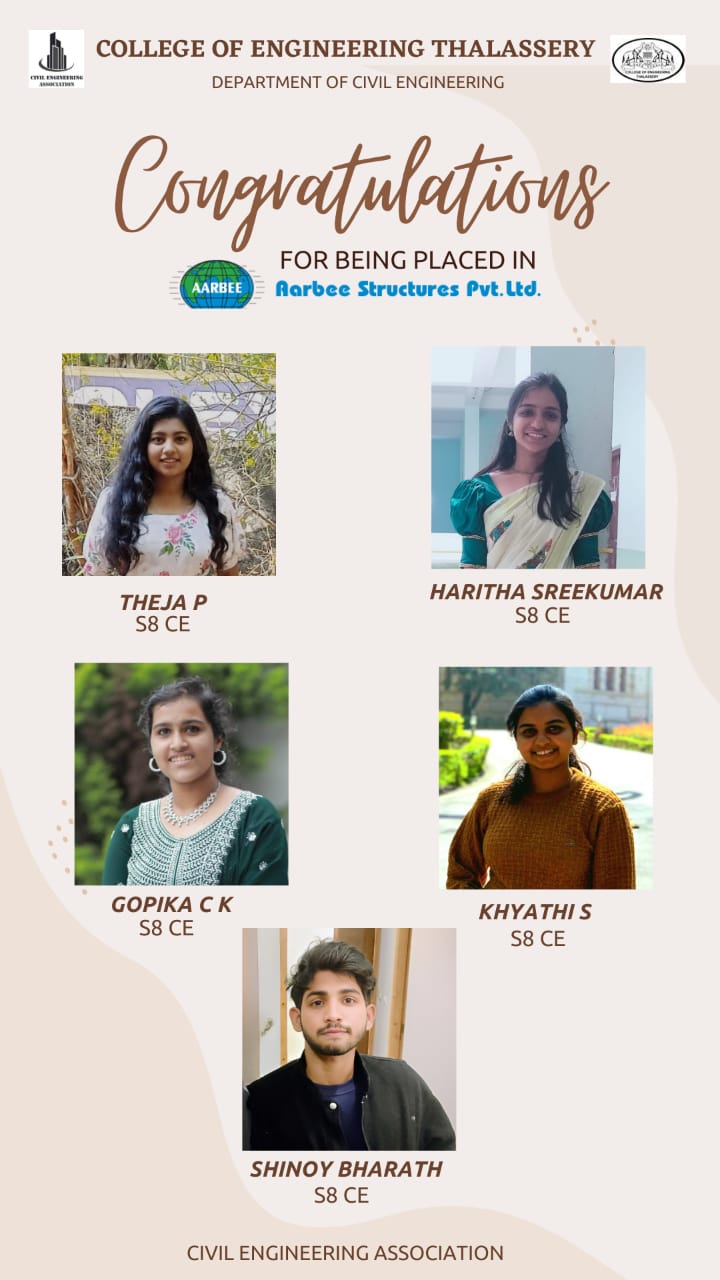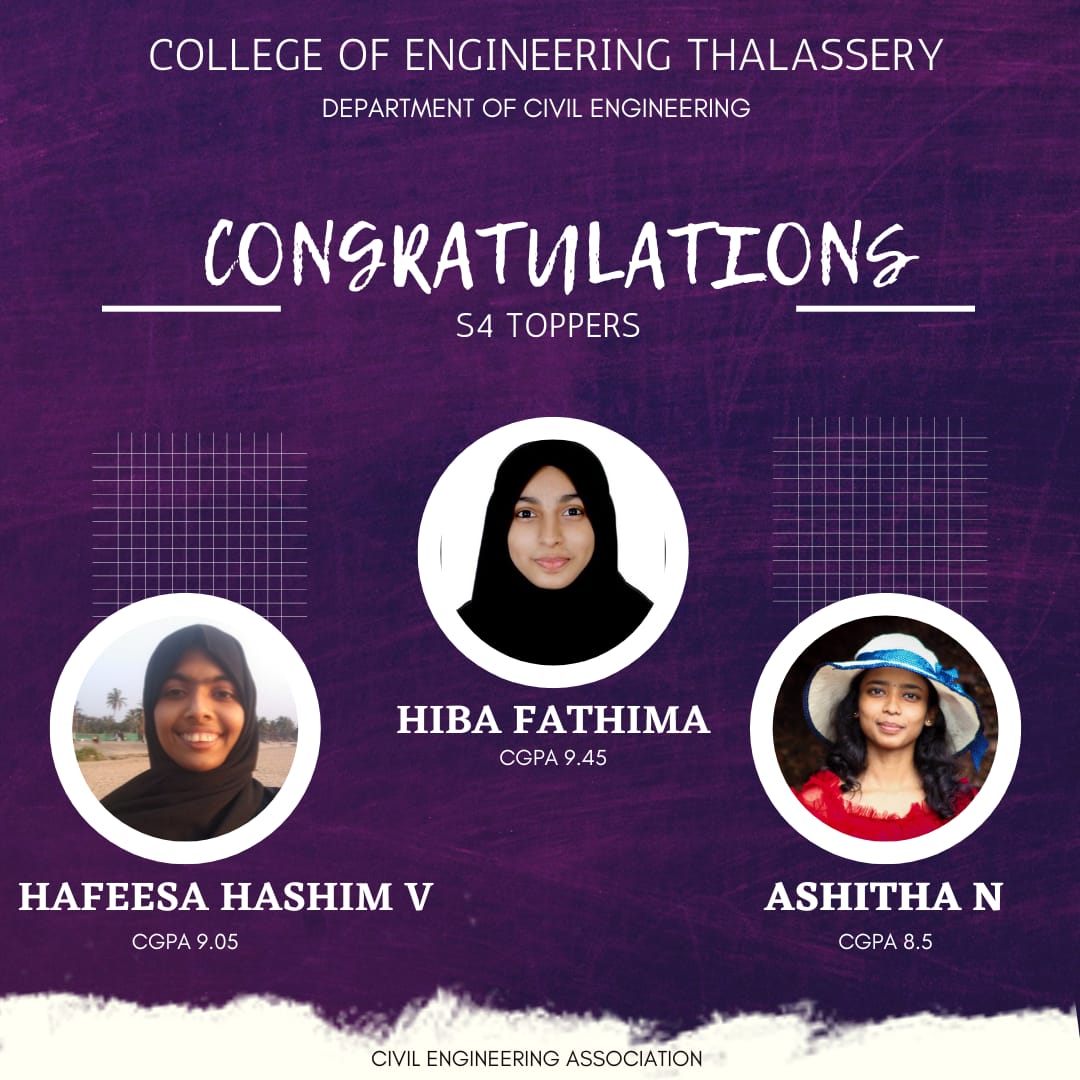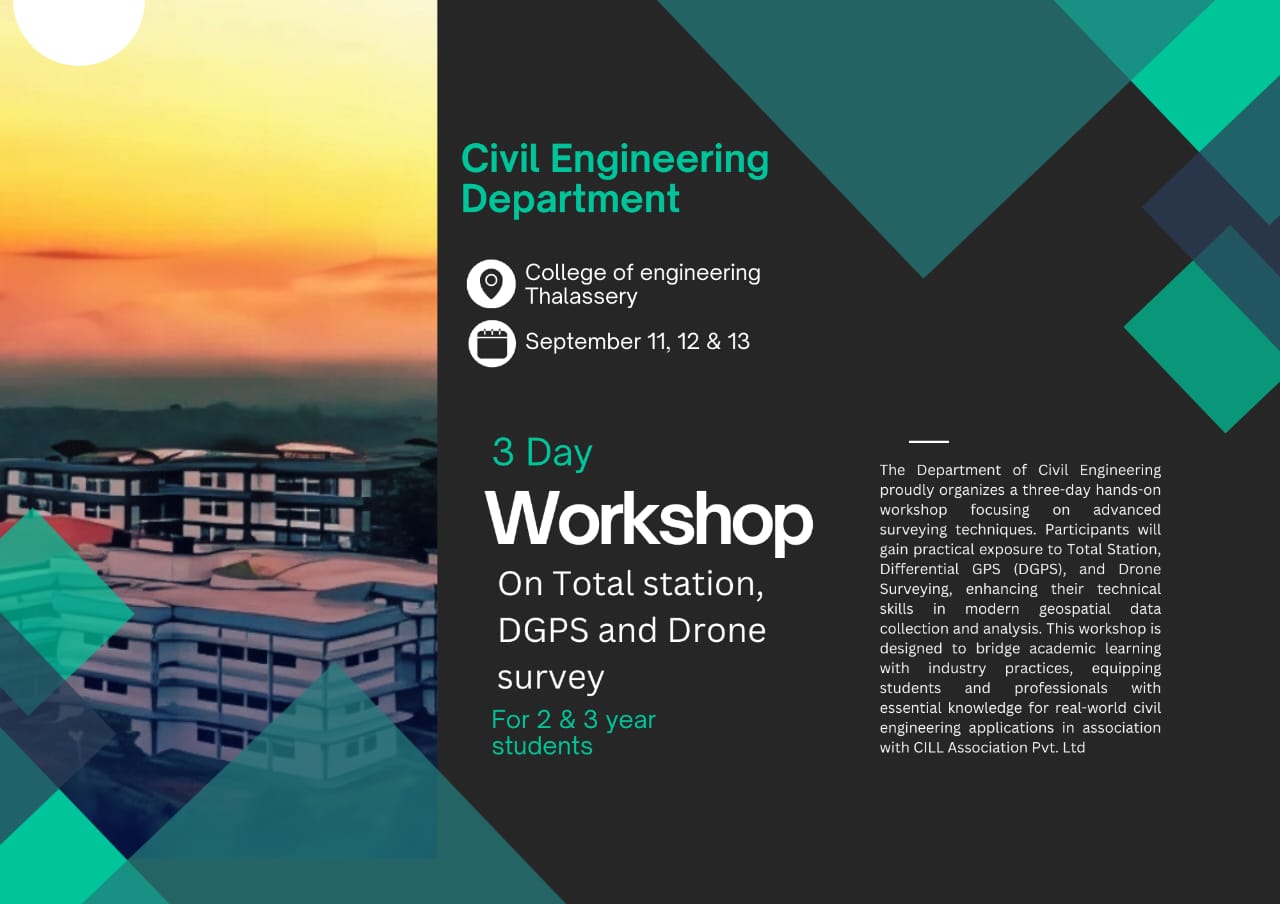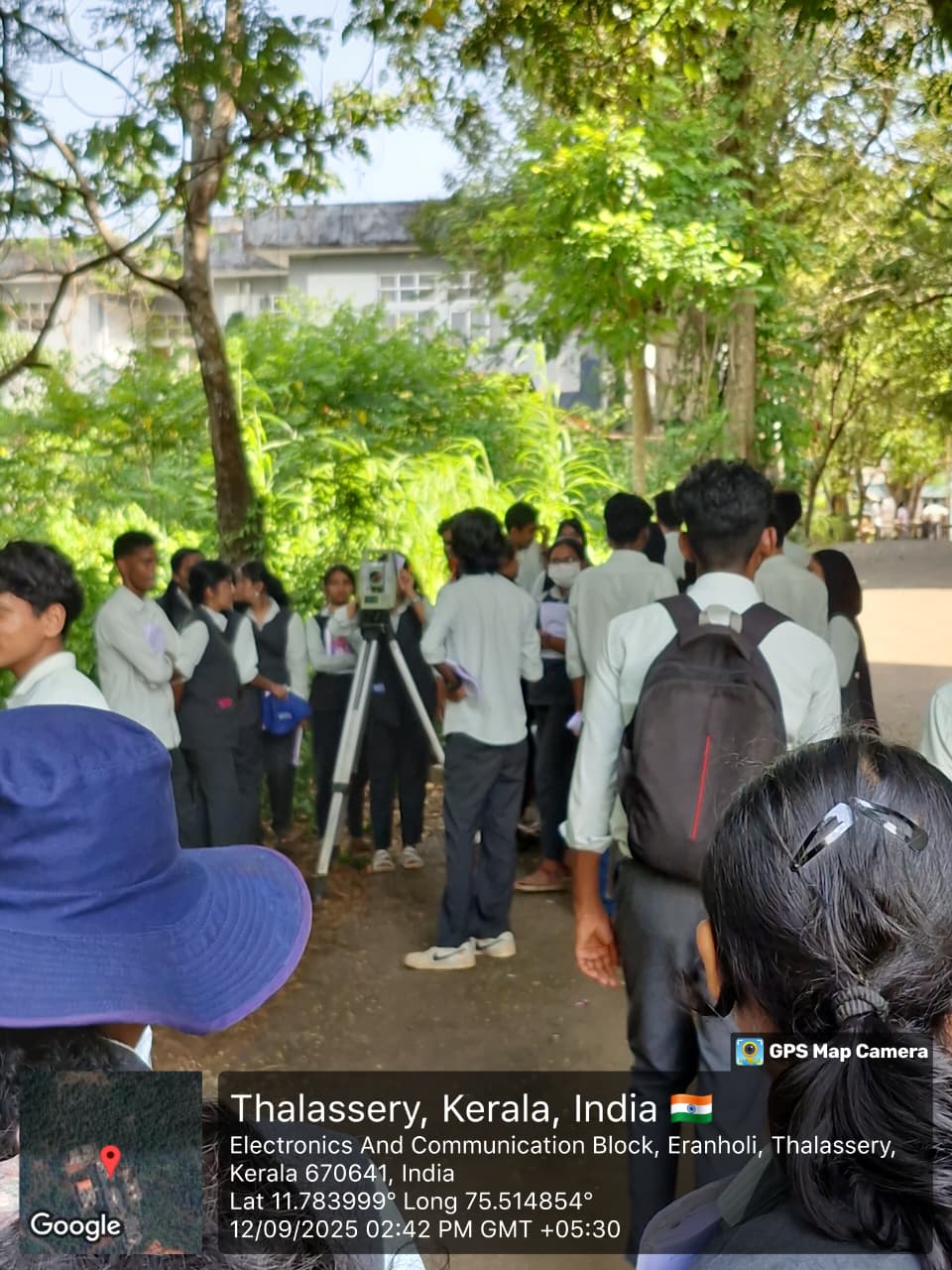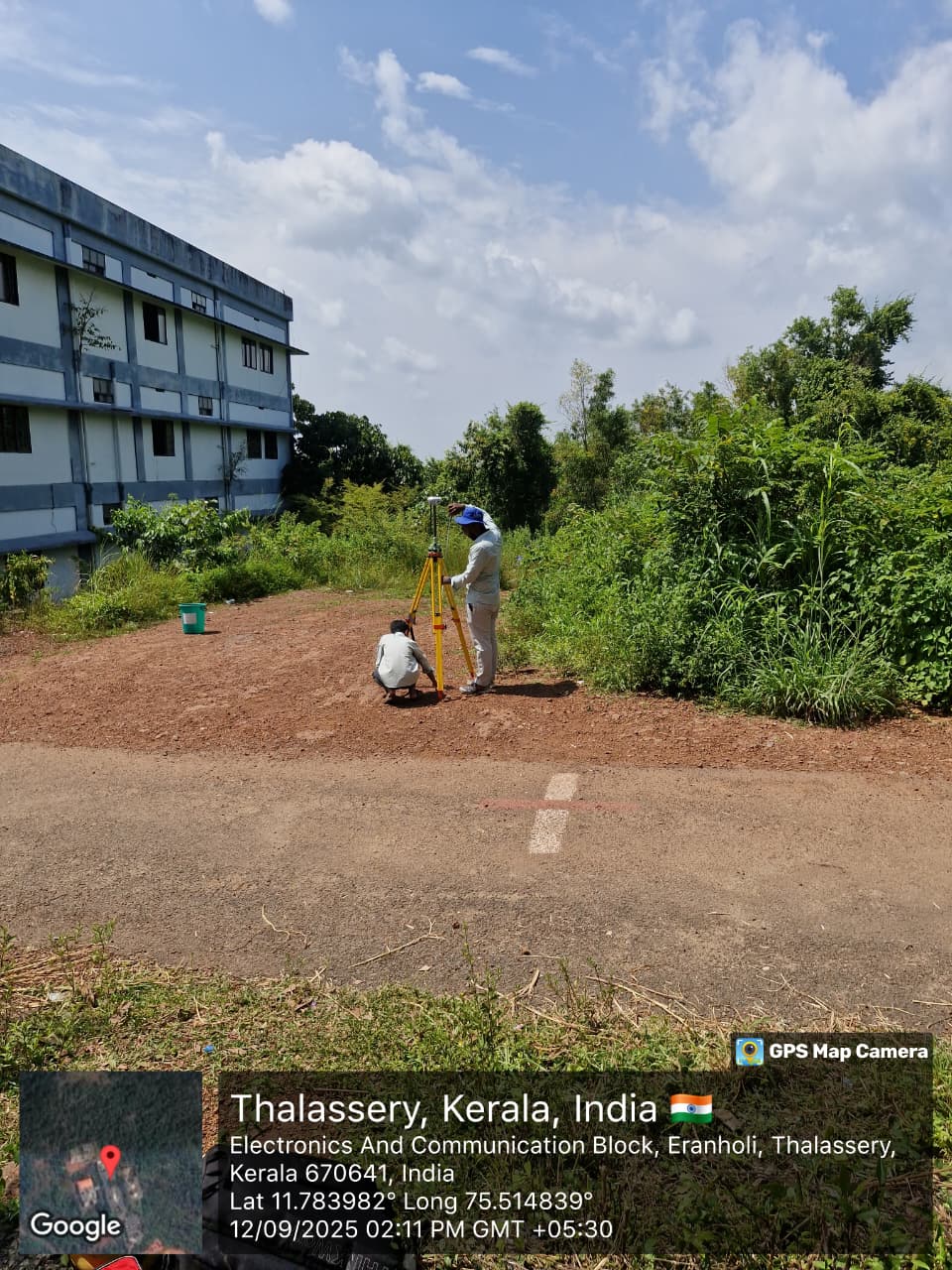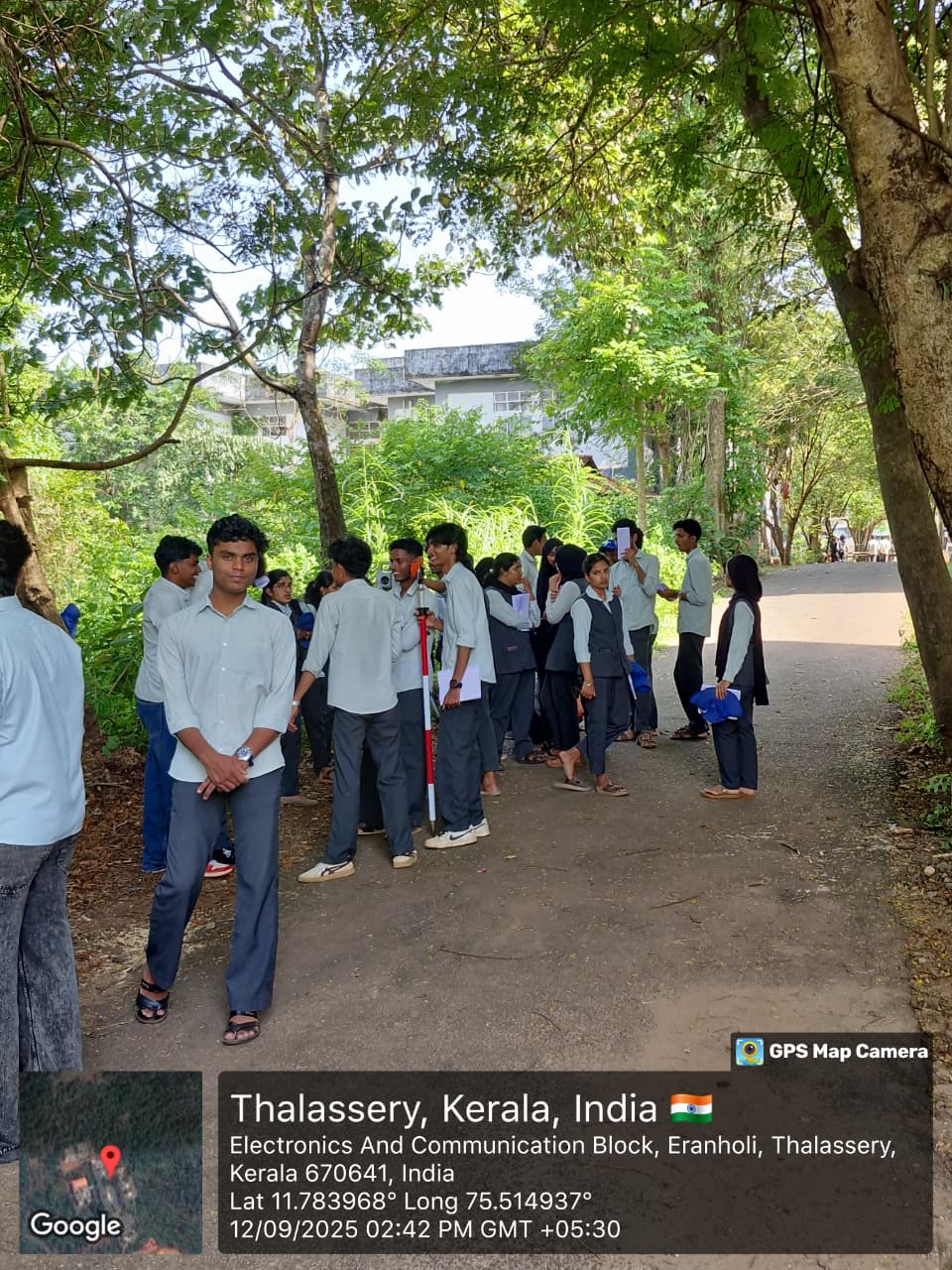The Department of Civil Engineering at College of Engineering Thalassery was established in 2014 . The department which had a humble start with 60 students , 2 faculty members and 2 labs, flourished itself to a strength of 244 students, 10 faculty members, 5 lab staff, 9 well equipped labs and 1workshop.
The perseverance of students and the encouragement of the faculty is always reflected in the university results where, our students hold the highest pass percentage. The department is still continuing its successful journey, with the motto of producing eminent civil engineers for the society....
Construction industry is currently growing with latest technologies and now there is a huge demand for civil engineers for satisfying the demand of infrastructural development. Civil engineers will always be needed to maintain and repair existing facilities and structures and to construct new ones. The service of civil engineers is inevitable in all the government department in the modern race. Not only in government department but also in private and public sector industries, research and educational institutions etc. This college provides excellent quality education and working condition. The department aims to mould the students into excellent engineering professionals by exposing them to different aspect of civil engineering. Practical training and survey camp are given to the students to improve their practical skills.. Our focus is on excellence teaching and training the students with emphasis to well equip them for challenges and opportunities. Read more
Vision
A recognized leader in Civil Engineering education and learning experiences.
Mission
To attract and welcome undergraduate students to our Bachelor of Technology program in Civil Engineering, and to graduate them as problem solvers who use relevant engineering approaches to develop innovative solutions, who become leaders in their organizations, and who possess the knowledge and skills required for a wide range of careers, career challenges, and lifelong learning.
Program Specific Outcomes (PSOs)
- 1.Proficiency in Civil Engineering problem identification ,formulation, analysis, design and execution ,optimizing the cost ,time, quality, and safety using appropriate tools.
- 2. Support the society with solutions to various Civil Engineering problems focusing on sustainable development and upholding professional ethics.
Program Educational Outcomes (PEOs)
Program Outcomes (POs)
Engineering Graduates will be able to:
1. Engineering knowledge: Apply the knowledge of mathematics, science, engineering fundamentals, and an engineering specialization to the solution of complex engineering problems.
2. Problem analysis: Identify, formulate, review research literature, and analyze complex engineering problems reaching substantiated conclusions using first principles of mathematics, natural sciences, and engineering sciences.
3. Design / Development of solutions: Design solutions for complex engineering problems and design system components or processes that meet the specified needs with appropriate consideration for the public health and safety, and the cultural, societal, and environmental considerations.
4. Conduct investigations of complex problems: Use research-based knowledge and research methods including design of experiments, analysis and interpretation of data, and synthesis of the information to provide valid conclusions.
5. Modern tool usage: Create, select, and apply appropriate techniques, resources, and modern engineering and IT tools including prediction and modeling to complex engineering activities with an understanding of the limitations.
6. The engineer and society: Apply reasoning informed by the contextual knowledge to assess societal, health, safety, legal and cultural issues and the consequent responsibilities relevant to the professional engineering practice.
7. Environment and sustainability: Understand the impact of the professional engineering solutions in societal and environmental contexts, and demonstrate the knowledge of, and need for sustainable development.
8. Ethics: Apply ethical principles and commit to professional ethics and responsibilities and norms of the engineering practice.
9. Individual and team work: Function effectively as an individual, and as a member or leader in diverse teams, and in multidisciplinary settings.
10. Communication: Communicate effectively on complex engineering activities with the engineering community and with society at large, such as, being able to comprehend and write effective reports and design documentation, make effective presentations, and give and receive clear instructions.
11. Project management and finance: Demonstrate knowledge and understanding of the engineering and management principles and apply these to one’s own work, as a member and leader in a team, to manage projects and in multidisciplinary environments.
12. Life-long learning: Recognize the need for, and have the preparation and ability to engage in independent and life-long learning in the broadest context of technological change.
Latest News
- 26
- April
Latest Events
